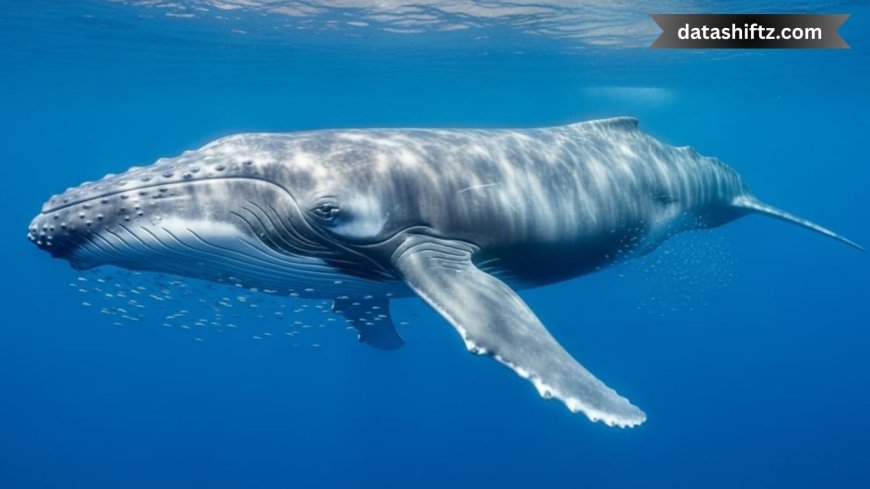Blue Whales Going Silent: What Is Happening to the Ocean Giants?

In recent decades, blue whales—the largest animals on Earth—have captivated the world with their majestic presence and hauntingly beautiful songs. However, emerging news reports suggest a worrying trend: blue whales are going silent. This alarming phenomenon has scientists, conservationists, and the general public concerned about the future of these magnificent ocean giants and the health of marine ecosystems.
Understanding the Silence: What Does It Mean When Blue Whales Stop Singing?
Blue whales communicate primarily through low-frequency sounds that can travel hundreds of miles underwater. Their songs are essential for mating, navigation, and social interaction. When scientists refer to blue whales "going silent," they mean these vocalizations have significantly decreased or changed in patterns.
Why Do Blue Whales Sing?
-
Mating Communication: Males produce long, complex songs to attract females.
-
Navigation: Sound helps whales navigate vast ocean expanses.
-
Social Bonds: Whales use vocalizations to maintain group cohesion.
The disappearance or reduction of these vocalizations could imply serious disruptions in their natural behaviors.
Potential Causes for the Silence
Several hypotheses have been proposed to explain this unsettling silence among blue whales:
| Cause | Description | Impact on Blue Whales |
|---|---|---|
| Ocean Noise Pollution | Increased shipping, drilling, and military sonar disrupt sound waves underwater. | Whales may stop singing to avoid harmful noise. |
| Climate Change | Changes in water temperature affect prey distribution and whale behavior. | Altered feeding patterns can impact vocal behavior. |
| Prey Depletion | Declining krill populations reduce food availability. | Malnourished whales might conserve energy, singing less. |
| Habitat Disturbance | Increased human activity in whale habitats causes stress. | Stress and displacement can reduce communication. |
The Consequences of Blue Whale Silence
The reduction in blue whale vocalizations has implications far beyond the animals themselves. Understanding these consequences helps highlight why this issue demands urgent attention.
1. Disrupted Mating Rituals
Blue whale songs are vital during mating seasons. Without these calls, males may struggle to attract females, leading to decreased reproduction rates and a shrinking population.
2. Navigational Challenges
Since whales rely on sound to navigate vast ocean spaces, silence might lead to increased risks of getting lost, straying into dangerous areas, or collisions with ships.
3. Breakdown of Social Structures
Whales are social creatures. Their songs maintain social bonds and coordinate group behaviors. Silence could mean isolation and weakened group cohesion, affecting survival.
What Are Scientists Doing About It?
Marine biologists and conservationists are actively researching this phenomenon and proposing measures to protect blue whales.
Monitoring and Research
-
Acoustic Monitoring Stations: These listen for whale songs and track changes over time.
-
Tagging and Tracking: Scientists attach devices to whales to study their movement and communication patterns.
-
Population Surveys: Regular counts estimate population size and health.
Conservation Efforts
-
Noise Regulation: Efforts to regulate shipping lanes and reduce ocean noise pollution.
-
Protected Areas: Designating marine sanctuaries where whales can live and communicate with less human interference.
-
Climate Action: Global initiatives to reduce carbon emissions to protect marine habitats.
How You Can Help Protect Blue Whales
The silent plight of blue whales isn’t just a scientific concern—it’s a call for collective action. Here are some ways individuals and communities can help:
-
Support Ocean-Friendly Policies: Advocate for regulations that limit ocean noise pollution.
-
Reduce Carbon Footprint: Lower greenhouse gas emissions by using sustainable transportation and energy.
-
Promote Marine Conservation Organizations: Donate or volunteer for groups working to protect whales and ocean habitats.
-
Responsible Whale Watching: Follow guidelines to avoid disturbing whale populations.
-
Raise Awareness: Share information about blue whale silence and its impacts on social media and community groups.
Blue Whale Silence — Causes, Effects, and Solutions
| Aspect | Details |
|---|---|
| Cause | Ocean noise, climate change, prey depletion, habitat disturbance |
| Effect on Blue Whales | Reduced singing, disrupted mating, navigational difficulties, social isolation |
| Scientific Response | Acoustic monitoring, tagging, population surveys |
| Conservation Actions | Noise regulation, protected marine areas, climate initiatives |
| How You Can Help | Policy support, carbon reduction, donations, responsible whale watching, awareness |
Conclusion: The Call to Listen and Act
The silence of blue whales today is more than just an absence of sound—it signals a distress call from the marine environment that cannot be ignored. These gentle giants play a crucial role in maintaining healthy ocean ecosystems, and their silence points to deeper issues caused by human activities.
Protecting blue whales requires a combined effort—from scientists and policymakers to individual citizens. By understanding why blue whales are going silent and taking active steps to mitigate these threats, we can ensure that future generations will still hear the awe-inspiring songs of the largest animals on Earth.





























